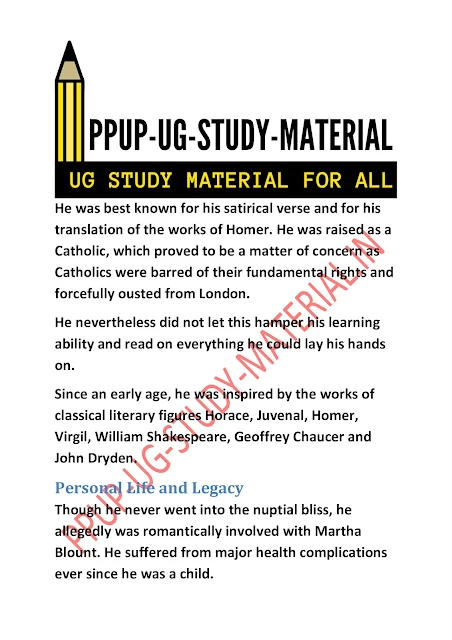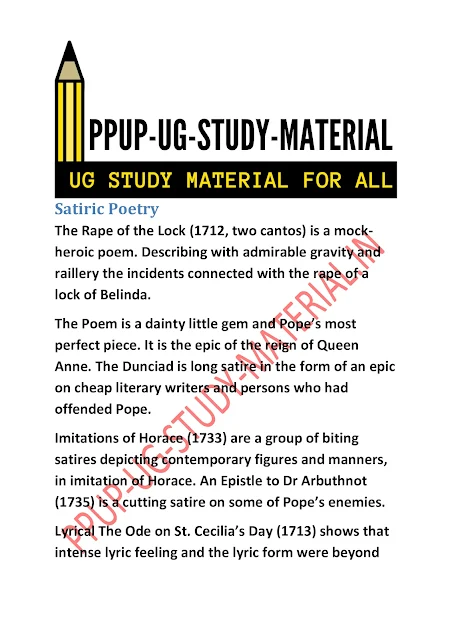Note on the Life and Works of Alexander Pope - ppup part 1 english honours notes and study material pdf
[ Note on the Life and Works of Alexander Pope - ppup part 1 english honours notes and study material pdf ]
In this BlogPost we'll cover These Topics - ppup part 1 english honours notes and study material pdf, PPUP part 1 english honours ug study material download, PPUP part 1 english honours ug study material free, PPUP part 1 english honours ug study material online, PPUP part 1 english honours ug study material pdf, PPUP part 1 english honours ug study material quora, patliputra university guess paper 2024 pdf, Alexander Pope biography PDF, Alexander Pope Summary, Alexander Pope famous works, Where was Alexander Pope born, Alexander Pope education, Alexander Pope famous poems, Alexander Pope writing style, Discuss Alexander Pope as a poet, Alexander Pope short Biography, Alexander Pope introduction, Alexander Pope Biography in English, Alexander Pope education, Alexander Pope as a neoclassical poet PDF, Alexander Pope famous works, Alexander Pope famous poems, Alexander Pope as a satirist PDF
Introduction to Note on the Life and Works of Alexander Pope | ppup part 1 english honours notes and study material pdf
Alexander Pope Personal Life and Legacy | ppup part 1 english honours notes and study material pdf
Conclusion for Note on the Life and Works of Alexander Pope
I hope You got what you were looking for ..reading this post Note on the Life and Works of Alexander Pope - ppup part 1 english honours notes and study material pdf ... and if you got any query ..you can comment below so we can provide you further assistance.












No comments